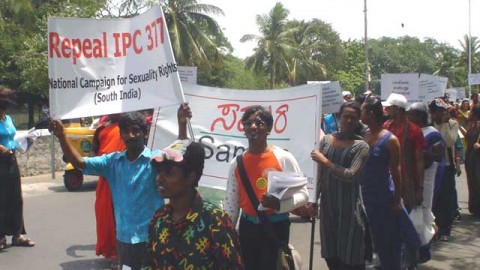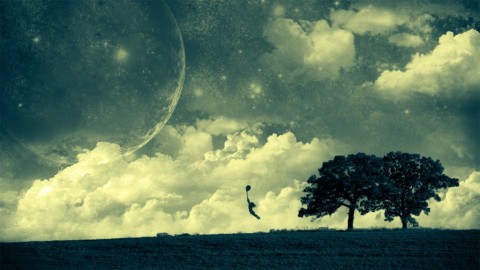I often wonder what comes out of capturing certain events in the past and putting it onto a screen for public viewing. Are we just reliving the trauma of a tragic event, celebrating the success of an endeavor or is there something more to it? Whenever we see any cinematic experience of a real-life event, we welcome it as there is an expectation of the exposition of the truth that hitherto lay buried. Apparently, the government of India felt that if Leslee Udwin’s ‘India’s Daughter’ would be broadcasted, it would “encourage and incite violence against
 women.” Let’s assume, our political heads concocted a very deep-rooted hypothesis to legitimize their decision, there is only one single simple thing that I cannot fathom. HOW? How on earth can it possibly happen that while exposing a sick mentality that leads to the most inhumane of crimes lead to its proliferation?
women.” Let’s assume, our political heads concocted a very deep-rooted hypothesis to legitimize their decision, there is only one single simple thing that I cannot fathom. HOW? How on earth can it possibly happen that while exposing a sick mentality that leads to the most inhumane of crimes lead to its proliferation?
Even if for a second we believe whatever perverted version of truth that lies in the upholding of the ban, it is a blatant and direct violation of freedom of speech and expression. As controversial as a topic as it may seem, confrontation is a must. We can’t simple go around banning things just because it shows us in bad light, not considering the event it is covering to be shameful enough? It is a documentation of a past occurrence over which the entire country has expressed solidarity and has accepted the grim reality as a major crisis. If we have acknowledged the gang-rape as a disgrace, what on earth is forbidding us to acknowledge its on-screen form?
Talking about the documentary itself, as much as it created a buzz over unmasking the crudity of patriarchy, it was criticized as much. The very first attack was on its title: India’s  Daughter. By naming it such, it was again viewing women as someone related to male figures and her independence and sense of agency was eluded thus reinforcing patriarchal norms. A peculiar( according to me, at least) sort of discomfort was felt by many who argued that it focused unduly more on showcasing how Jyoti was the ‘good girl’ who always helped others, respected her parents, wanted to become a doctor to save lives et al. By engaging in such selective concentration, Leslee is said to be drawing attention to the gross
Daughter. By naming it such, it was again viewing women as someone related to male figures and her independence and sense of agency was eluded thus reinforcing patriarchal norms. A peculiar( according to me, at least) sort of discomfort was felt by many who argued that it focused unduly more on showcasing how Jyoti was the ‘good girl’ who always helped others, respected her parents, wanted to become a doctor to save lives et al. By engaging in such selective concentration, Leslee is said to be drawing attention to the gross
injustice where a good girl was raped with no rime or reason. The question raised is had it been a ‘bad girl’ who roamed the streets at night with her male friends, used to party and wear whatever felt good to her, would we have received a similar reaction or would the society have condemned the victim? No denying the point raised is significant as it challenges societal norms of good and bad but I believe, it is irrelevant in this case. If Jyoti was a good girl, can we really blame Leslee for presenting her in that way? It would be foolish to answer in the affirmative. Next in line was the constant harking of their low economic status and the residential area to which the rapists belong and the glorification of education as its ultimate solution. People say it creates the assumption that all uneducated, poor people are rapists. I say, one can only draw this conclusion if one is viewing it in an exclusionary manner. One point I would like to make here is that this documentary is specific. It is not a generalization of all rapes that occur all across the country. When we make such arguments which unnecessarily attempt to universalize this documentary, it is just silly. Another critique was that there was no need for a white woman to go ahead and film a rape case of India for two major factors. First being the obvious bias of a British lady towards the savage Indian land. It was viewed as a colonial attack on our culture. Second, she had no right to make a film of rape in India when England suffers from the same disease. So why did she not choose to document a case from her own country? My response to this
 frail argument would be first, freedom of choice. She could document whatever she wanted to. By actually stating this absurd reason we are inversing our own critique of what our government has done by banning it in the first place! Second, the 16 December gang-rape was not about India anymore. The entire world was impacted.
frail argument would be first, freedom of choice. She could document whatever she wanted to. By actually stating this absurd reason we are inversing our own critique of what our government has done by banning it in the first place! Second, the 16 December gang-rape was not about India anymore. The entire world was impacted.
Look at the flipside. It brought forth the grisly thought-process of the rapist. It made a surprising revelation with respect to the defence lawyers who made extremely sexist remarks which irked the viewers beyond measure. It brought to light the mentality of the police and what they think they are doing and to what extent it is not enough. This gave us very crucial pointers to contemplate in order to transform the situation.
No matter how much we try to find faults with a particular piece of work or art, it is simply not reason enough to deny people the right to decide for themselves. Banning is never a solution. It only serves to agitate the people who rise even more strongly against it. Banning is temporary. What we need to do is focus on the issue it addresses. Nothing will ever come out of forbidding people to watch something. Only when one will see can they realize what is right or wrong with it and what needs to be done to combat it.
Tags: india India's Daughter Leslee Udwin








